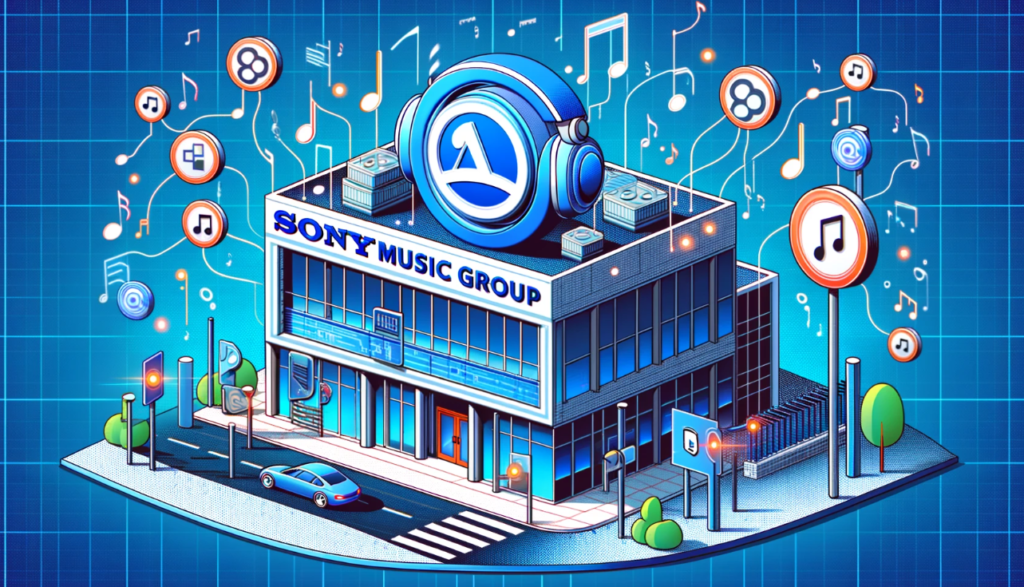Sony Music Group has issued a stern warning to over 700 AI companies, prohibiting them from using its extensive music catalog for AI model training. The move comes as part of a broader effort to protect the intellectual property rights of artists and songwriters from unauthorized AI-generated reproductions.
Declaration of AI Training Opt Out
In its “Declaration of AI Training Opt Out,” Sony Music Group emphasized its support for technological advancements that aid artists in their creative endeavors. However, the company insisted that these innovations must respect the copyrights and rights of songwriters and recording artists.
Direct Action Against Major AI Companies
Sony Music Group has taken proactive measures by sending letters to leading AI companies, including OpenAI, Microsoft, and Google. These letters demand that these firms refrain from using Sony’s musical content for AI training purposes. The company also requested disclosures on any prior usage of Sony’s works, including the methods of access and the number of copies made.
Sony’s Comprehensive Prohibition
The declaration includes Sony Music Publishing (SMP), Sony Music Entertainment (SME), and their subsidiaries. It explicitly prohibits any text or data mining, web scraping, or similar activities involving Sony’s musical compositions, lyrics, audio recordings, audiovisual recordings, artwork, images, and data for training, developing, or commercializing AI systems.
Response from AI Companies
As of now, Sony, OpenAI, Google, and Microsoft have not responded to Decrypt’s request for comment. The lack of response highlights the tension between the music industry and AI developers over the use of copyrighted material.
AI-Generated Knockoffs
Sony artists, including Michael Jackson, Celine Dion, Adele, and Travis Scott, have been popular targets for AI-generated knockoffs. These AI-generated songs, often found on platforms like YouTube, mimic the style and sound of well-known artists, raising significant copyright concerns.
Artists Embracing AI Technology
Despite the controversy, some Sony artists have experimented with AI technology. For instance, Billy Joel used AI for his single “Turn the Lights Back On,” and jazz drummer Nate Smith has explored AI’s potential in music creation. However, these artists view AI as a tool to enhance their creativity, not as a replacement for organic songwriting and production.
Industry-Wide Efforts to Protect Artists’ Rights
In April, major music labels, including Sony Entertainment, Warner Music Group, Universal Music Group, and Disney Music Group, joined forces with the Screen Actors Guild and American Federation of Television and Radio Artists (SAG-AFTRA) to limit the use of performers’ voices in AI applications. This agreement mandates that record labels must secure written consent from artists before using AI tools for digital voice replication.
Artists’ Stand Against Unauthorized AI Use
A group of prominent artists, including Billie Eilish, Katy Perry, Nicki Minaj, and others, signed an open letter demanding an end to the unauthorized use of their voices. This collective action underscores the growing concern among artists about the potential misuse of AI in the music industry.
Legislative and Public Advocacy
During a U.S. Senate Judiciary Committee session, British actor and musician FKA Twigs expressed the personal impact of AI on artists. She emphasized that her art and brand are deeply personal and should not be exploited without consent. Her testimony highlights the need for legislative protections for artists against unauthorized AI usage.
Sony Music Group’s decisive action against AI firms underscores the importance of protecting artists’ rights in the age of artificial intelligence. While AI technology holds significant potential for the creative industries, it must be used responsibly and ethically, ensuring that the intellectual property rights of artists and songwriters are respected.












